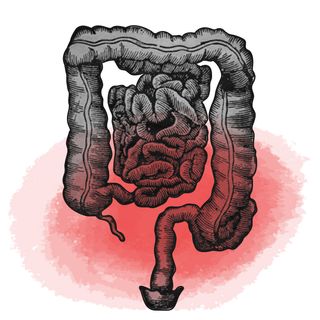Heightened levels of stress, anxiety, and depression in pregnant women can affect the brain development of their fetuses by altering neural connectivity, a new study has found — suggesting a need for interventions to diagnose and decrease stress in pregnant women, especially amid a global pandemic.
Published in the JAMA Network journal on Monday, the study involved 50 healthy pregnant women from “low-risk obstetric clinics” in Washington, D.C., who were asked to fill out questionnaires to screen for stress, anxiety, and depression. Subsequently, they underwent brain scans of their fetuses, to help the researchers study brain circuitry.
The results showed that fetuses of women with higher anxiety levels were more likely to have weaker connections between brain areas involved in executive and higher cognitive functions, like time management, planning, working memory, and self-control. At the same time, researchers also noted stronger connections between parts of the brain connected to emotional and behavioral controls — suggesting a “form of altered fetal programming, where brain networks are changed by this elevated anxiety even before babies are born,” Dr. Josepheen De Asis-Cruz, M.D., Ph.D., lead author of the study and staff scientist at Center for the Developing Brain, at the Children’s National Health System in Washington, D.C., said in a statement.
“Toxic levels of anxiety appear to be having direct effects on the way the fetal brain is being sculpted and organized in utero. What the expectant mother is experiencing, the unborn baby is experiencing as well …” Catherine Limperopoulos, Ph.D., the director of Developing Brain Research Laboratory at the Children’s National Health System in Washington, D.C. and a study co-author, told CNN.
Related on The Swaddle:
Cannabis Use During Pregnancy Linked to Increased Risk of Autism in Children
The researchers note the study can be instrumental in drawing attention to women’s mental health during pregnancy, which often gets overshadowed by sexist assumptions that all pregnant women are thrilled to be expecting. “Mental health problems remain taboo, especially in the peripartum period where the expectation is that this is a wonderful time in a woman’s life. Many pregnant mothers aren’t getting the support they need,” Limperopoulos said.
Experts note that during pregnancy, some degree of elevation in levels of cortisol, or the stress hormone, is not just normal, but even critical to the development of organ systems in the fetus. However, prolonged or severe stress can lead to adverse birth outcomes such as low birth weight and preterm birth. In addition, studies suggest that severe stress can also lead to gestational diabetes or preclampsia in pregnant women, which can, in turn, lead to complications like impaired blood flow to the fetus, affecting the baby’s long-term health.
Studies from China and the U.S. have already reported that pregnant women are experiencing increased levels of stress during the pandemic — making mental health interventions to diagnose and decrease stress in pregnant women even more important.
“There’s a critical take-home message here…. It is really important that we are alerting women to the fact that high levels of stress may have an effect on their baby’s development and direct them to resources that can help them better manage their stress during this pandemic and beyond,” Limperopoulos concluded.




